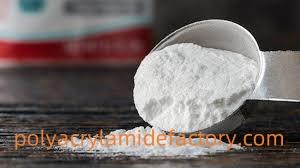How Can Hengfeng Optimize Dewatering Of Sludge For Industry?

Dewatering Of Sludge is an essential procedure for industries aiming to reduce waste volume and improve processing efficiency. In wastewater treatment plants, food production facilities, and chemical operations, removing excess water from sludge is critical to ensure smooth workflow and minimize environmental impact. Efficient dewatering not only facilitates easier handling but also enhances the potential for recycling and energy recovery.
The challenges associated with sludge management are multifaceted. Sludge often contains a mix of fine solids, organic matter, and other impurities, making separation difficult. Traditional methods, such as natural settling, may take too long and fail to reach desired dryness levels. Modern technologies, however, focus on optimizing flocculation, filtration, and centrifugation, providing more reliable results while reducing operational costs.
Choosing the right dewatering method depends on sludge characteristics. Viscosity, particle size, and water content all influence the effectiveness of separation. Chemical agents, particularly polymers, play a vital role in aggregating particles, allowing them to settle or be filtered more efficiently. Mechanically, advanced presses or centrifuges can accelerate water removal without compromising the quality of the remaining material. These techniques not only save time but also reduce energy consumption.
Environmental and economic benefits are tightly connected. Efficient sludge dewatering prevents untreated wastewater from contaminating natural resources. It also decreases the transportation and disposal costs associated with bulky, water-laden sludge. Facilities that adopt optimized processes can demonstrate responsible management practices, which can enhance their reputation and support regulatory compliance.
Hengfeng offers specialized solutions tailored to meet these challenges. Their products combine innovative design with high-performance materials to ensure that sludge is dewatered effectively and consistently. By integrating chemical and mechanical strategies, Hengfeng delivers equipment that reduces labor requirements, improves operational reliability, and maximizes long-term value for industrial users.
The benefits extend beyond traditional industries. Dewatering techniques are increasingly applied in agricultural and environmental projects, allowing organic waste to be converted into compost or biogas efficiently. By extracting excess water and concentrating solids, these methods create opportunities for circular economy practices, turning waste into usable resources.
Flexibility is another hallmark of modern systems. Automated controls and real-time monitoring allow operators to adjust process parameters according to the specific composition of sludge. This adaptability ensures consistent results even with variable inputs, reducing human error and minimizing downtime. Facilities can operate more smoothly, saving both time and operational costs.
Efficiency, sustainability, and regulatory compliance all converge in effective sludge management. Forward-looking organizations recognize that investing in advanced dewatering solutions today can prevent future challenges, improve productivity, and contribute to environmental protection. Whether handling municipal wastewater or industrial byproducts, optimized dewatering strategies provide a competitive advantage.
To explore high-quality solutions for sludge management, visit https://www.polyacrylamidefactory.com/product/ . Here, you can find a variety of products designed to improve dewatering efficiency while reducing operational complexity and environmental impact.
- Art
- Causes
- Crafts
- Dance
- Drinks
- Film
- Fitness
- Food
- Spiele
- Gardening
- Health
- Startseite
- Literature
- Music
- Networking
- Andere
- Party
- Religion
- Shopping
- Sports
- Theater
- Wellness


